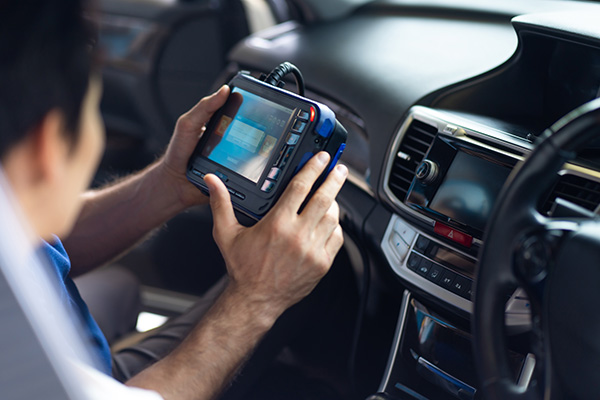
Today’s cars are more than just mechanical machines. They’re rolling computers with complex software systems managing everything from how the engine runs to how your transmission shifts. At the center of it all is the powertrain control module, or PCM. This small but powerful computer is responsible for coordinating the behavior of the engine, transmission, and other drivetrain components to ensure smooth, efficient performance.
Over time, as manufacturers discover ways to improve performance, fuel economy, or emissions, they release updated software for the PCM. Reprogramming your PCM installs these updates. Think of it as downloading the latest version of an app on your phone, but in this case, it can improve how your car drives and prevent future problems.
What Exactly Does the PCM Control
The PCM processes input from dozens of sensors located throughout your vehicle. These sensors monitor variables like engine temperature, air intake, throttle position, and vehicle speed. Based on this data, the PCM adjusts fuel delivery, ignition timing, and shifting behavior.
If the engine is the heart of your car, the PCM is the brain. It’s constantly making decisions to optimize how the vehicle runs. A glitch in its programming can result in poor fuel economy, rough idling, sluggish acceleration, or even failure to start. That’s why keeping its software up to date is so important.
When Might PCM Reprogramming Be Necessary
Reprogramming isn’t something most car owners think about, but it can solve a range of issues. You might need a PCM update if:
- Your vehicle has driveability issues that don’t respond to standard repairs.
- A recent repair involved replacing the PCM or key components like the engine or transmission.
- The check engine light stays on with no clear mechanical issue.
- A technical service bulletin (TSB) from the manufacturer recommends an update for known software bugs.
- Emissions testing fails due to outdated software managing emissions controls.
In some cases, your vehicle may already be functioning properly, but the manufacturer has released a PCM update to enhance performance or comply with new regulations. These updates aren’t always automatic—they often require a visit to a qualified repair facility with the right equipment.
Reprogramming vs. Replacing the PCM
It’s important to understand that reprogramming is not the same as replacing the PCM. Replacement involves physically removing the existing module and installing a new one. This is typically only necessary when the original unit fails, such as after a power surge, water intrusion, or internal short circuit.
Reprogramming, on the other hand, uses a diagnostic tool to rewrite or update the software on the existing PCM. It’s a non-invasive process that retains the original hardware while upgrading the internal instructions the module uses to operate.
In many cases, reprogramming is a more affordable and practical option than replacement, particularly when the underlying issue is software-based.
What’s Involved in the PCM Reprogramming Process
Reprogramming requires specialized diagnostic equipment and access to the manufacturer's most recent software files. The process starts by scanning the PCM to confirm the current version. If an update is available, the technician will download the new software and upload it to your vehicle’s system.
During the update, the vehicle must be connected to a power source to avoid any interruptions. A disruption in the process could corrupt the software and render the PCM inoperable, so it’s not a job for DIY mechanics or general scan tools.
Once the update is complete, the system is tested to ensure that the new programming is functioning as intended. This may include test-driving the vehicle or running additional diagnostics to confirm sensor communication and proper operation.
Signs You Should Consider a PCM Update
You don’t need to be a technician to recognize that something’s off with your vehicle. If you notice hesitation while accelerating, erratic shifting, poor fuel economy, or a persistent check engine light with no obvious cause, these could be signs that your PCM needs attention.
Even if your car seems fine, it’s worth asking your service provider during regular maintenance whether there are any open TSBs for your vehicle that involve software updates.
Get Expert PCM Reprogramming at Oceanworks Berkeley in Berkeley, CA
Just like your smartphone or computer benefits from updates, so does your car’s PCM. Keeping it current ensures your engine and transmission are performing optimally and helps you avoid costly repairs in the future.
Call Oceanworks Berkeley in Berkeley, CA, today to ask about PCM reprogramming. Our skilled technicians can check your software version, identify available updates, and ensure your vehicle is running on the latest and most reliable programming.